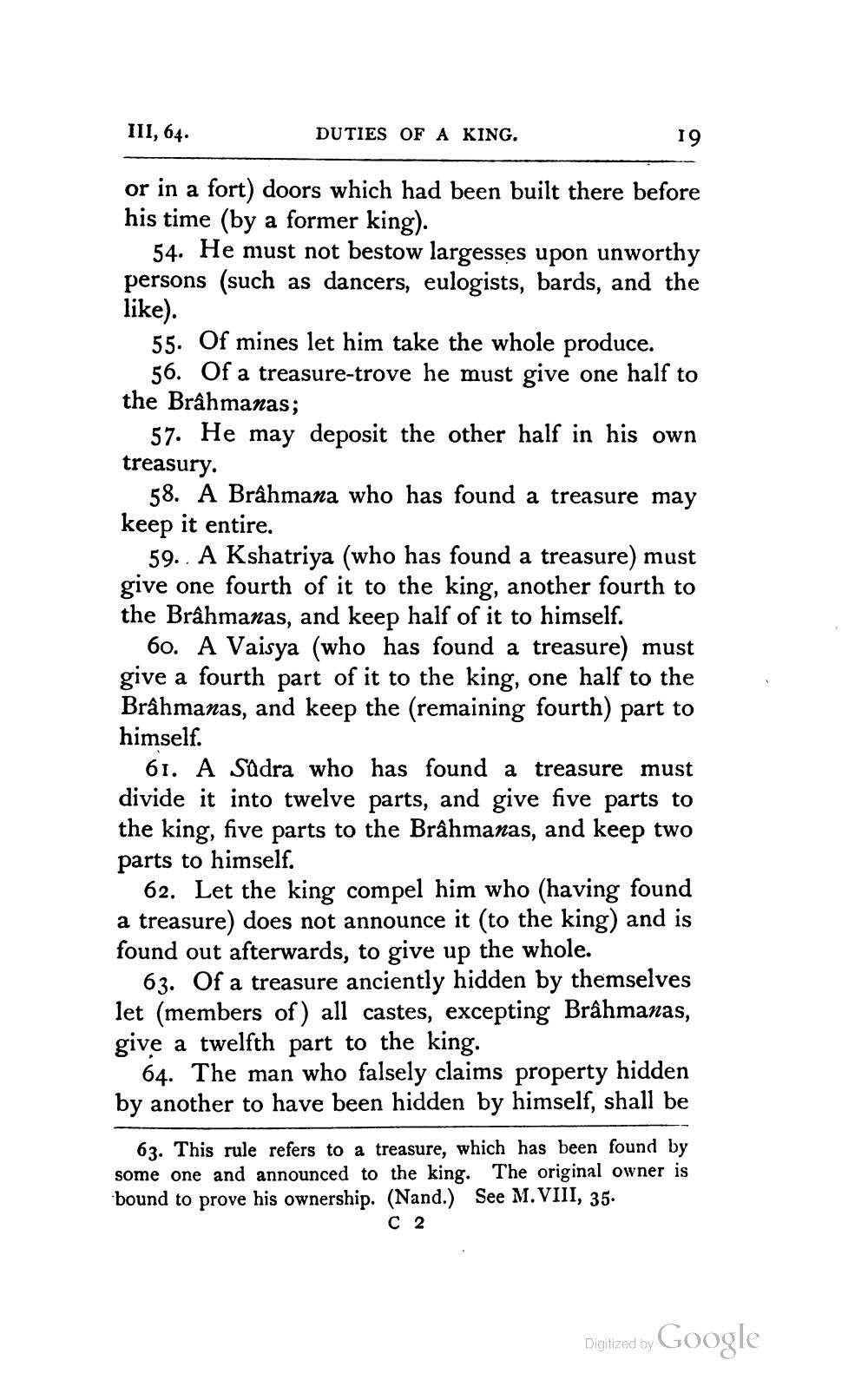________________
III, 64.
DUTIES OF A KING.
19
or in a fort) doors which had been built there before his time (by a former king).
54. He must not bestow largesses upon unworthy persons (such as dancers, eulogists, bards, and the
like).
55. Of mines let him take the whole produce.
56. Of a treasure-trove he must give one half to the Brâhmanas;
57. He may deposit the other half in his own
treasury.
58. A Brâhmana who has found a treasure may keep it entire.
59.. A Kshatriya (who has found a treasure) must give one fourth of it to the king, another fourth to the Brâhmanas, and keep half of it to himself.
60. A Vaisya (who has found a treasure) must give a fourth part of it to the king, one half to the Brâhmanas, and keep the (remaining fourth) part to himself.
61. A Sadra who has found a treasure must divide it into twelve parts, and give five parts to the king, five parts to the Brâhmanas, and keep two parts to himself.
62. Let the king compel him who (having found a treasure) does not announce it (to the king) and is found out afterwards, to give up the whole.
63. Of a treasure anciently hidden by themselves let (members of) all castes, excepting Brâhmanas, give a twelfth part to the king.
64. The man who falsely claims property hidden by another to have been hidden by himself, shall be
63. This rule refers to a treasure, which has been found by some one and announced to the king. The original owner is bound to prove his ownership. (Nand.) See M. VIII, 35.
C2
Digitized by Google




